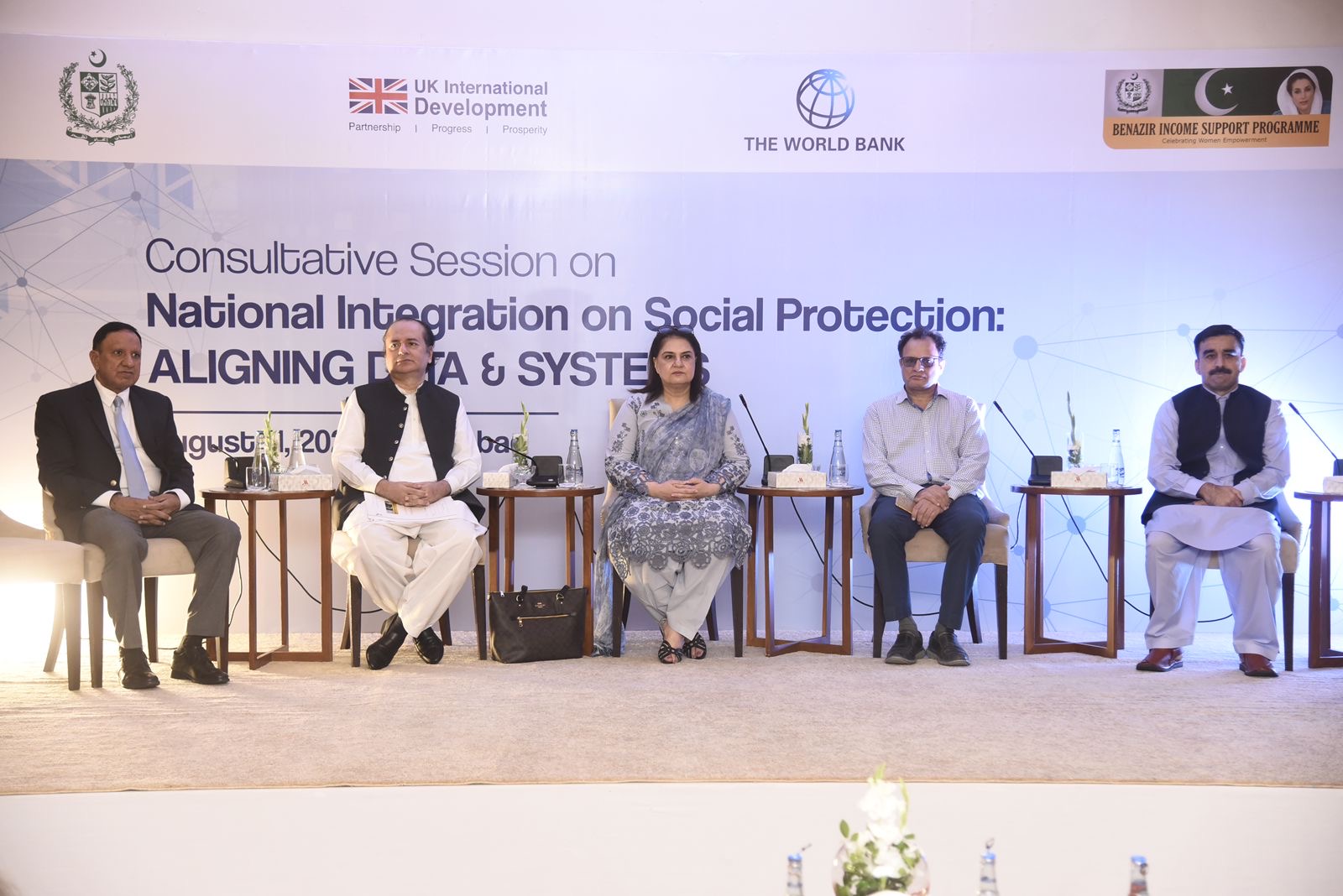
Islamabad , August 11, 2025(Kamran Raja): The Benazir Income Support Programme (BISP), in partnership with the World Bank and UK International Development, convened a National Consultative Session on “National Integrated Social Protection: Aligning Data & Systems” in Islamabad today. The event aimed to enhance coordination, strengthen secure data-sharing protocols, and promote interoperability between federal and provincial social protection stakeholders.
The session brought together senior representatives from federal and provincial governments, social protection authorities, development partners, and technical experts to discuss strategies for integrating systems, improving data flows, and leveraging the National Socio-Economic Registry (NSER) for targeted welfare planning.
In her keynote address, Chairperson BISP Senator Rubina Khalid underscored the importance of unity as the foundation of social protection, echoing the vision of Shaheed Mohtarma Benazir Bhutto: “Charon Sobo ki Zanjeer, Benazir Benazir.” She called for greater provincial engagement, robust cybersecurity measures, and integration of NSER with other programmes to enable rapid response during climate shocks. She reaffirmed BISP’s commitment to partnering with provinces on skill development, income generation, and social inclusion to build a resilient Pakistan.
Secretary BISP Amer Ali Ahmad described BISP as the “center of gravity” for Pakistan’s social protection system, emphasizing the need to eliminate duplication, foster synergies, and maximize benefits for beneficiaries through shared learning and collaboration.
Director General (NSER) Dr. Asim Ijaz presented current data-sharing protocols, existing collaboration mechanisms, and planned improvements in integration. Provincial representatives—including from Punjab, Sindh, Khyber Pakhtunkhwa, Balochistan, Azad Jammu & Kashmir, and Gilgit-Baltistan—shared insights on the use of NSER data in targeting beneficiaries, challenges faced, and proposed solutions.
Development partners enriched the discussions with technical perspectives. NCERT highlighted data security protocols, the World Bank introduced cloud-based sharing frameworks, GiZ discussed adaptive protection systems, and the Asian Development Bank showcased integrated MIS models and two-way data-sharing practices.
The session concluded with a joint statement by all stakeholders, reaffirming their commitment to Strengthening interoperability between provincial and federal systems, Ensuring compliance with global cybersecurity standards, Building trust and transparency in data sharing, Exploring innovative, adaptive models for integrated social protection
BISP and its partners pledged to continue working together to create a more inclusive, secure, and responsive social protection network for the people of Pakistan.